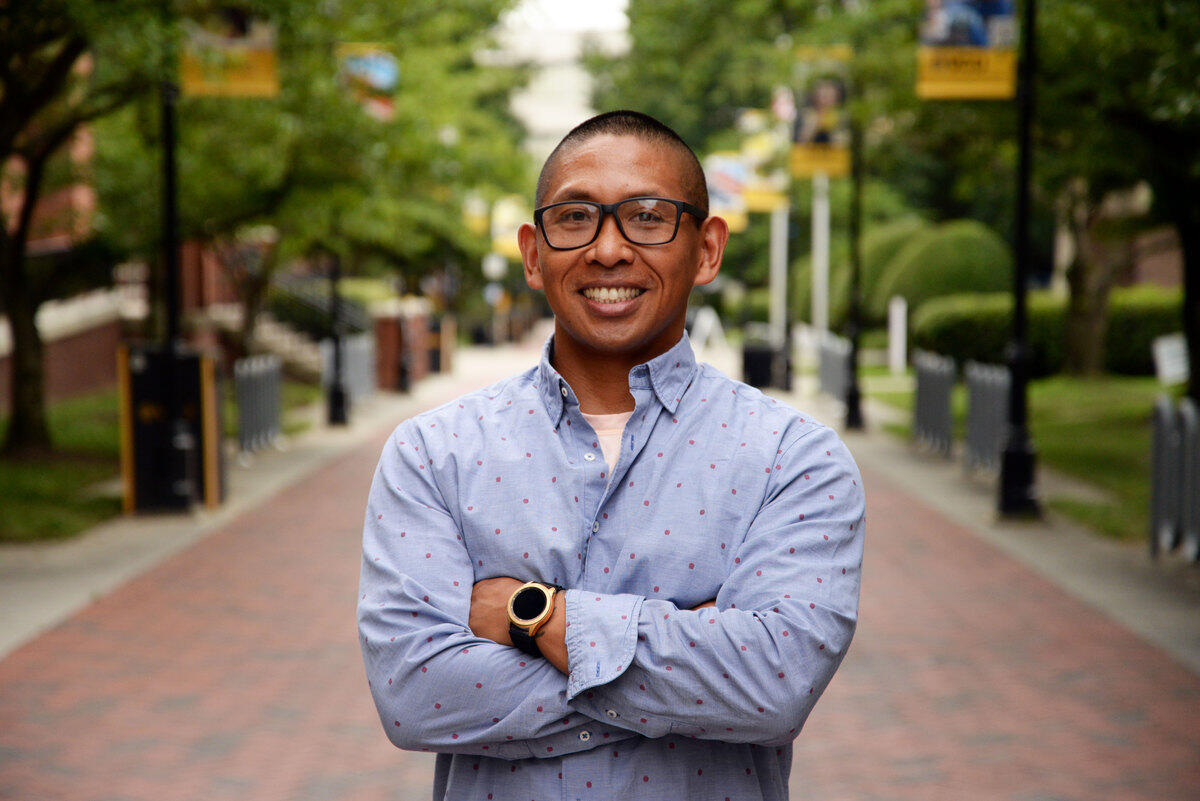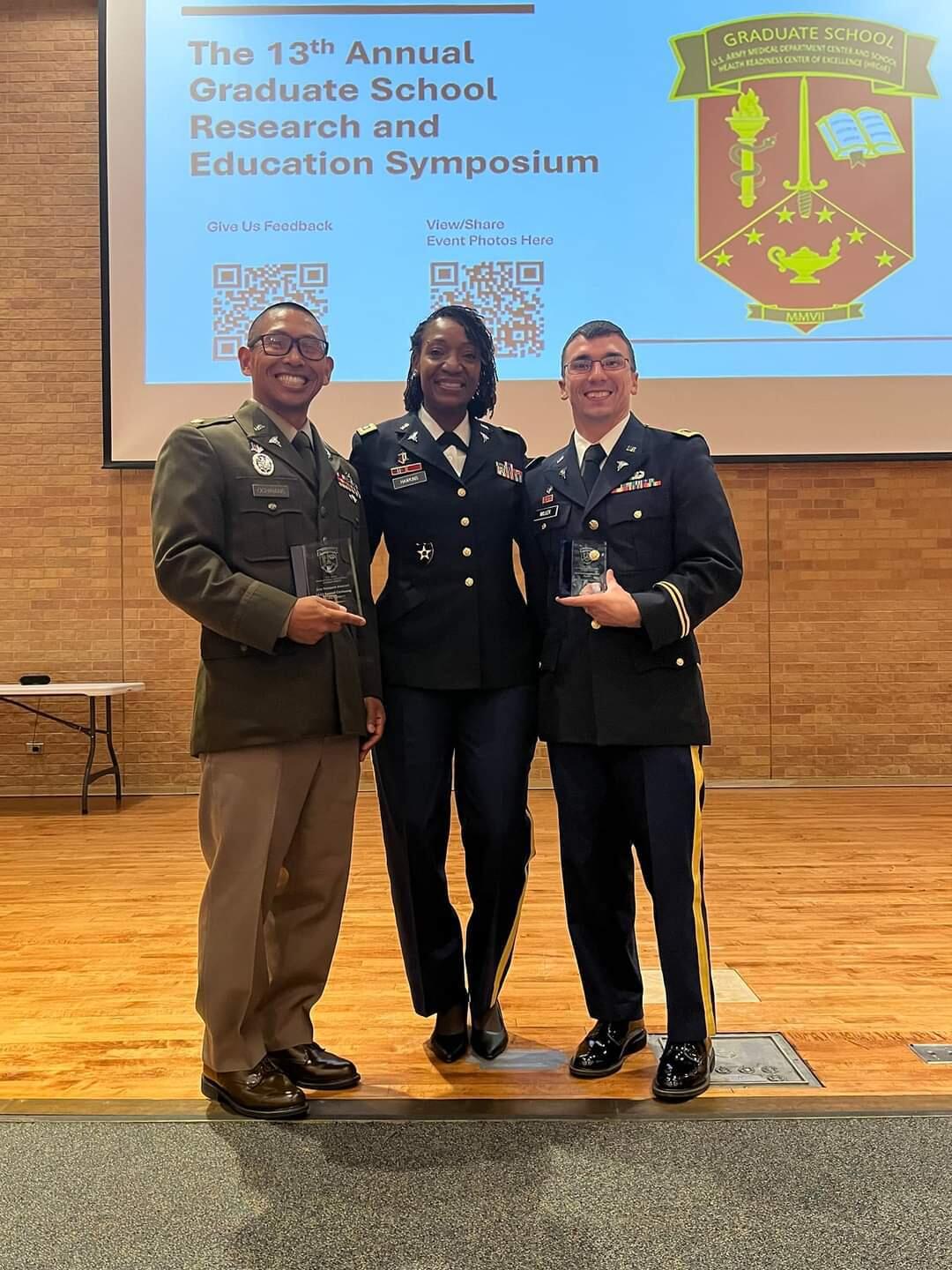
July 12, 2024
A calling to serve: Social Work doctoral student Samuel Ochinang targets military mental health
Share this story
Samuel Ochinang, a second-year Ph.D. student in Virginia Commonwealth University’s School of Social Work and an active-duty Army major with the Medical Service Corps, knew early in life that he had a calling to serve.
As he grew up, Ochinang’s community was the military community. He and his family lived on military bases around the world, following his father’s job as a teacher for the Department of Defense.
“That was my childhood,” he said. “Most of my peers, a lot of the people that inspired me growing up like coaches and teachers – they were all affiliated with the military. My father served before he was a teacher, my brother’s also in the service – we have that lineage.”
Family history spurred Ochinang’s interest in the military, but it was another childhood experience that planted the first seed for his interest in social work.
In elementary school, he made a memorable first visit to the Philippines with his parents, who emigrated from the country years earlier. There, he saw for the first time the tangible effects of poverty as he watched other children without clothes beg for spare change in the street. The moment marked one of what he called his first “hard lessons” about privilege.
“As I moved into my adult life and had experiences in and around the military, I started to read about what social workers do and the profession itself, and it clicked with some of the values that I’ve maintained,” Ochinang said. “I just didn’t know it was a profession.”

After earning his bachelor’s degree from the University of California, Berkeley, he accepted a commission into the Army, where he joined the small field of military social work. He received his master’s in social work from Fayetteville State University in North Carolina in 2016.
“The military is multifaceted,” Ochinang said. “My journey in the Ph.D. program, along with my position, will improve my technical and managerial skills to influence organizations and future leaders.”
In his Medical Service Corps role, Ochinang supports soldiers’ well-being through direct therapy, treatment and other programs. He and fellow military social workers consult with commanders about the psychological health of units that may include 1,500 to 3,500 soldiers.
This June, Ochinang presented his research on impulsivity and suicide among first-year college students at the annual U.S. Army Medical Center of Excellence Graduate School Research and Education Symposium, where he was recognized with the Best Research Abstract award.
“When I became a social worker, what brought me into wanting to study suicide was, unfortunately, experiencing multiple suicides with some of the Army units I was serving with,” he said. “Seeing the effects of those suicides on the units, the families and the behavioral health providers of whom I was in charge – it was tough. I see my research as a tribute or an ode to the individual struggling with suicide, and the families, friends, the community in general. I just want to do my part.”
While his study is not generalizable to a specific population such as the military, Ochinang knows the project will hone his research abilities for future work as he targets the rising suicide rate in the military.
“I’m extremely grateful for the recognition,” he said. “I’m just grateful to be able to hopefully use my platform to continue to inspire other people and other social workers.”
Subscribe to VCU News
Subscribe to VCU News at newsletter.vcu.edu and receive a selection of stories, videos, photos, news clips and event listings in your inbox.









